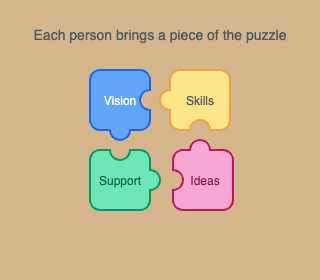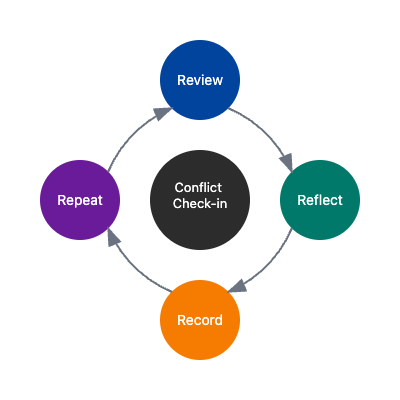Having learned to navigate through group tension with composure and strategic communication, you're ready to elevate your perspective on conflict itself. When people disagree, it means they see things differently, and that’s a good thing! If everyone always agrees, you might miss out on new ideas or important problems. When handled well, disagreements can help teams find better solutions, learn from each other, and become stronger.
Think about it like this: when people in a group have different ideas about when to start something new, it might feel a little tense at first. But if everyone shares their thoughts and really listens to each other, the group can come up with a plan that’s even better than what anyone thought of on their own. Maybe one person is excited to get started right away, while someone else wants to wait and make sure everything is ready. By talking it through, the group can find a solution that works for everyone. In the end, having different opinions helps the group get creative and make smarter choices together.

The best teams don’t just get through conflict—they learn from it. After a disagreement, it helps to look back and ask, “What did we learn?” This way, every argument becomes a chance to get better at working together.
By talking about what happened, the team finds ways to avoid the same problems next time. One helpful way to do this is to use a simple learning method after big disagreements, called a “conflict check-in.” This is a short conversation where everyone reflects on what happened and what can be learned. Here’s a simple framework you can use:

1. Review: Start by quickly going over what happened. Make sure everyone has a chance to share their view of the situation.
2. Reflect: Ask questions to help the group think about how the conflict was handled. For example:
- What worked well in how we handled this?
- What could we do differently next time?
- Did we learn anything new about how we work together?
3. Record: Write down any lessons or ideas that come up. This helps the group remember what they learned and use it in the future.
4. Repeat: Make this check-in a regular habit after disagreements. The more you practice, the better your group will get at learning from conflict.
Using this simple framework, every disagreement becomes a chance to grow and improve as a team.
When things go wrong, it’s easy to point fingers. But blaming doesn’t help anyone learn. Instead, try to figure out what you can learn from what happened. This helps everyone feel safe to share their ideas—even if they’re different.
Here’s how Nova, Ryan, and Jake handle a disagreement after a project didn’t go as planned:
- Nova: This is what I was worried about. We didn’t check the budget, and now we’re over.
- Ryan: Maybe if you’d told me the numbers, I could have helped.
- Jake: Let’s pause. Instead of blaming, what can we learn for next time?
- Nova: I guess I could have shared the budget earlier.
- Ryan: And I should have asked if I didn’t know. Maybe we need a checklist for big projects.
In this conversation, the group moves away from blaming each other and instead focuses on what they can learn from the situation. By talking honestly about what happened and what could be improved, they come up with practical ideas—like sharing information sooner and creating a checklist for future projects. This approach helps everyone feel heard and turns a mistake into a chance to work better together next time.
By focusing on learning, a group can find ways to do better in the future. You can help resolve group conflicts by asking questions like:
- What can we do differently next time?
- What did we miss, and how can we catch it earlier?
- How can we make sure everyone has the info they need?
When you focus on learning instead of blame, disagreements become a way for everyone to grow together. Try using conflict check-ins and team agreements to turn challenges into opportunities for improvement. In the next practices, you’ll get a chance to try out these habits and see how they can help your group become stronger, more creative, and ready for anything.
